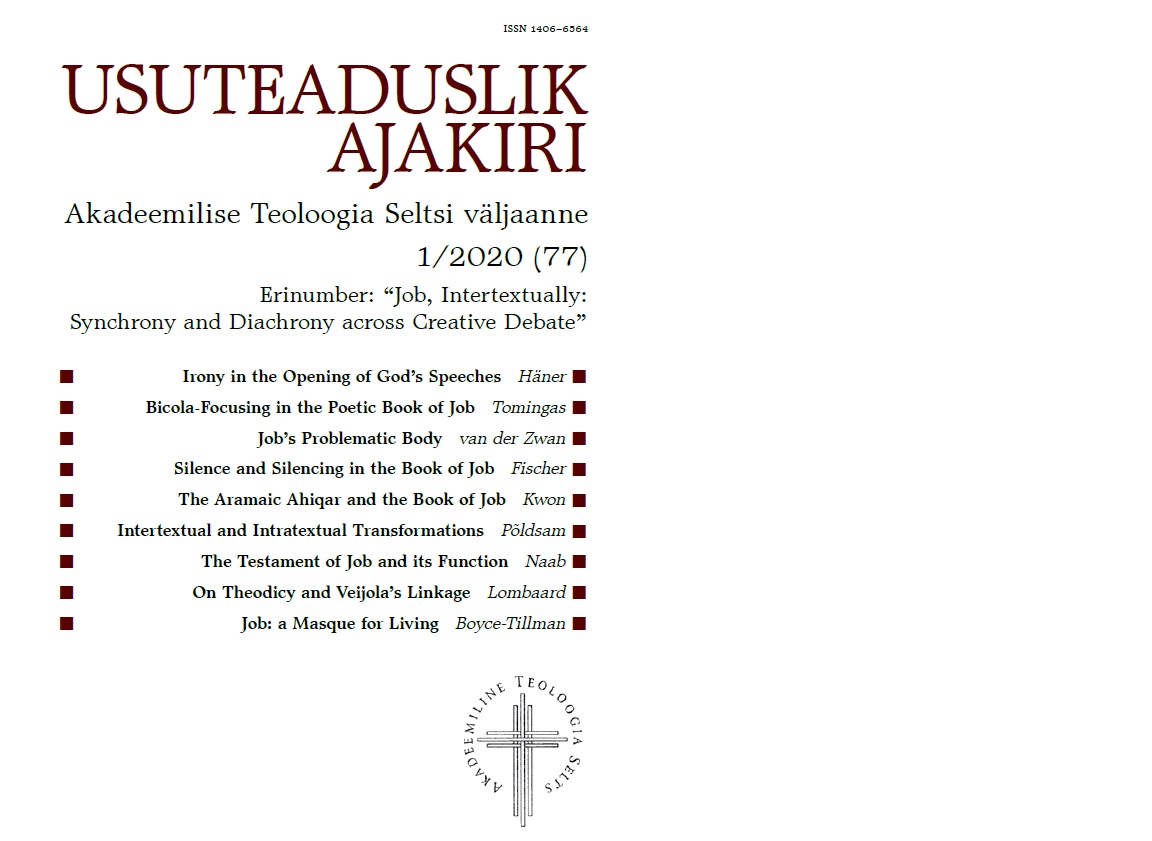Intertextual and Intratextual Transformations in the Testament of Job
Intertextual and Intratextual Transformations in the Testament of Job
Author(s): Anu PõldsamSubject(s): Studies of Literature, Theology and Religion, Biblical studies, Theory of Literature
Published by: Akadeemiline Teoloogia Selts
Keywords: Testament of Job; reception history; perception of suffering; intertextuality;
Summary/Abstract: Biblical Job is a character that simply cannot escape comment and his story has been retold across the monotheistic religions and across a wide variety of genres, in which he is sometimes praised and sometimes condemned. The Book of Job contains many ambiguities that leave plenty of room for ambivalent interpretations, as is especially evident in the reception history of the Book of Job in the Jewish literary tradition. The long reception history of the Book of Job helps exemplify how intertextuality functions, how old material is reset into new contexts and how characters transform, both from one text to another and within the changed context of a single text. A good example of this is the pseudepigraphic Testament of Job when explored in light of its reception history both in the Jewish tradition (or the lack of such) and in the context of the biblical Book of Job. The aim of the current paper therefore is to highlight the intertextual (from patient sufferer to an enduring “athlete”) as well the intratextual transformation of Job (from reward-oriented suffering towards freedom from sufferings thorough insight) as presented in the Testament of Job.
Journal: Usuteaduslik Ajakiri
- Issue Year: 2020
- Issue No: 1 (77)
- Page Range: 129-142
- Page Count: 14
- Language: English

